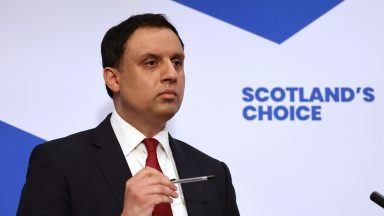During, and in the immediate aftermath of, the Scottish election, there was quite a bit of debate and comment over the basic issue of what constitutes a mandate.
I say ‘basic’, for it really should be as straightforward as who won the election and can that party command a parliamentary majority to enact pledges made in their election manifesto?
And yet, this fundamental proposition seemed lost amid a whole series of refinements to the ‘who wins and who can govern’ principle. As this argument was played out against a backdrop of fury over the proposed holding of a second independence referendum, it seemed positions were taken and argued from the perspective of for or against constitutional change.
As the counting of votes got under way and as it became clear that the SNP had won the election and won it well, a narrative emerged that somehow it would represent failure if they did not win 65 seats. And, if they didn’t, they had no mandate for indyref2.
Once the votes had been counted, several Conservative big hitters then turned to the share of the vote on the constituency ballots to argue that unionist votes outpolled votes for independence, as if the election was actually a referendum.

Many of those same politicians have argued that since nationalists insisted the 2014 referendum was to be ‘once in a generation’ or ‘once in a lifetime’, then this should act as an effective bar to the holding of a new poll.
The desire to introduce novel concepts to the idea of what constitutes a mandate is primarily used by proponents of the status quo. I don’t criticise them for that; it’s politics after all and politicians deploy arguments they think bolster their positions.
Two great constitutional questions have dominated the last decade in politics. Should Scotland become an independent country? And should the UK leave the European Union? The people have spoken in two referenda and the judgement was No to the former proposition and Leave to the latter.
The SNP won the 2011 election and legislated for an independence poll. They had a mandate to do so. The Conservatives won the general election in 2015 and legislated for an in-out EU referendum. They had a mandate to do so. In both cases, the principle is the same; you win an election and if you can command a parliamentary majority for your position it will see the light of day.
Straightforward enough, isn’t it?
Of course, politics will always attempt to complicate what is not complicated. It is perfectly true that Scotland voted decisively to remain in the UK. For many remainers, there was therefore no mandate to take Scotland out of the UK. Most voters in Scotland do not vote for Conservative governments and it has been long argued, therefore, that they have no mandate to enact anything. These, of course, are political arguments that define the hurly-burly of crossfire.
 STV News
STV NewsWhat is indisputable is that voters of the UK as a whole elect the UK Government. If the Conservatives across the UK win an election and wish to bring forward proposals for which there is not support in Scotland, it can do so. Its mandate comes from votes across the UK.
One of the arguments for independence is that you will always get the government you vote for and that the current constitutional settlement does not bridge the reality of Scotland going one way on an issue, like Brexit and the government of the UK going in another direction.
True enough, but as long as the constitution is as it is, it is not credible to argue that a Conservative government at Westminster has no mandate to pursue policies it was elected to enact.
Likewise, it is not credible for politicians in Scotland to deny the SNP has a right to pursue indyref2. What was good enough for a UK Conservative government in 2015 should be good enough for an SNP government in 2021.

I deliberately say ‘right to pursue’ since the arguments over a Holyrood-inspired independence referendum may yet succumb to legal arguments in the courts. That mother of constitutional battles is for another day.
Just for the record, the Conservatives won the 2015 election on 37% of the vote. The SNP won the most recent election with a constituency vote of 47.7%, a full ten percentage points ahead of the Conservative share in the UK in 2015.
Our system of government does not rely on winning over 50% of the popular vote, it relies on being able to form a government and carrying the numbers in parliament for a proposal. The electoral system may be unfair, but that is an argument about the electoral system, not about the right to govern.
Many issues, probably most issues, where governments take decisions are not to be found in a party election manifesto but they decide nevertheless since they have won an election and have a mandate to govern. That’s the way the system works.
The mandate argument is now about to fade and a new one will take centre stage post-Covid and that concerns the legality of any new plebiscite.
At the moment we have a stand-off.
Nicola Sturgeon wants a legally agreed poll with Westminster, but Boris Johnson does not want to play ball. Plan B for Sturgeon is for Holyrood to legislate, daring the Prime Minister to go to court to block the move. The First Minister reckons that would simply propel a surge in support for independence and marginalise the UK Government on the issue.

She would argue she has a mandate to pursue a referendum. He would argue he has a mandate to say ‘no’. What is obvious is that a stand-off without end is not very satisfactory for either party. The issue highlights a glaring hole in the constitution of the UK, that part written, part unwritten, uncodified mish-mash of rules and conventions; there is a need to agree how a constituent nation of the UK can hold a constitutional referendum or alter its relationship with the rest of the UK.
For Scotland, there is the precedent of 2014 but that cannot be triggered as a matter of automatic legal right. In Northern Ireland there is a route to a ‘border poll’ on Irish reunification and in Wales the debate lags behind even addressing such issues.
There is talk of a constitutional convention in the air. If one ever sees the light of date then it should definitively pronounce on mandates, road maps to change and put beyond skirmish the questions currently defining the major faultline in Scottish politics.


























